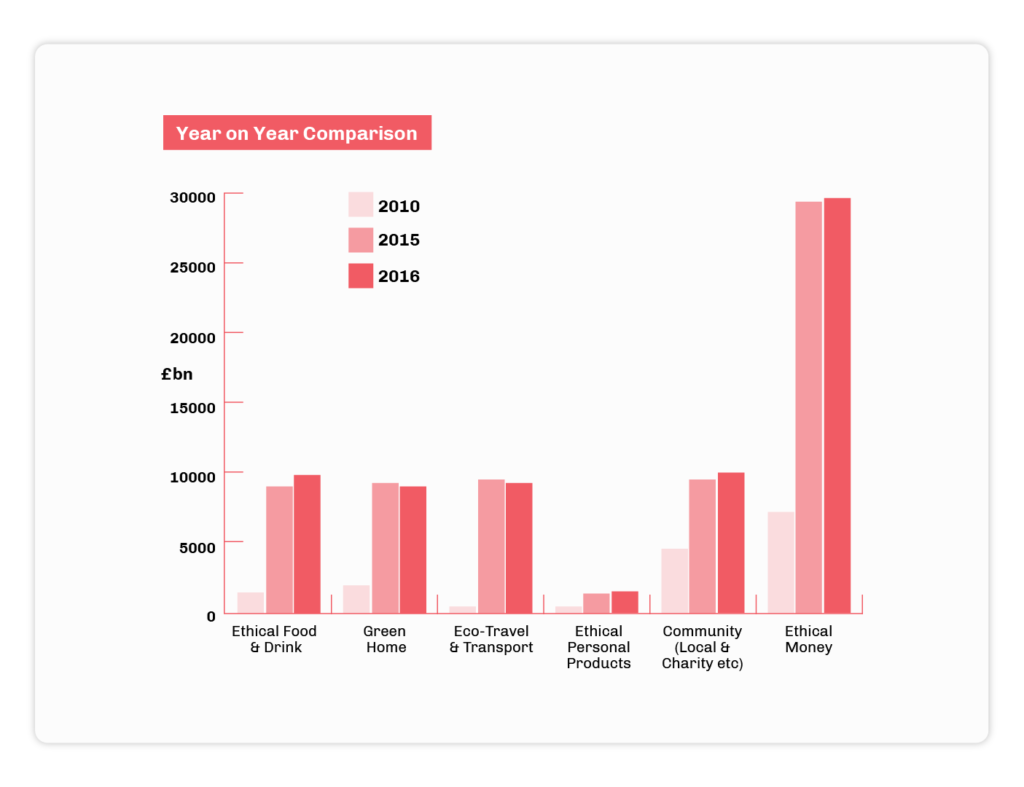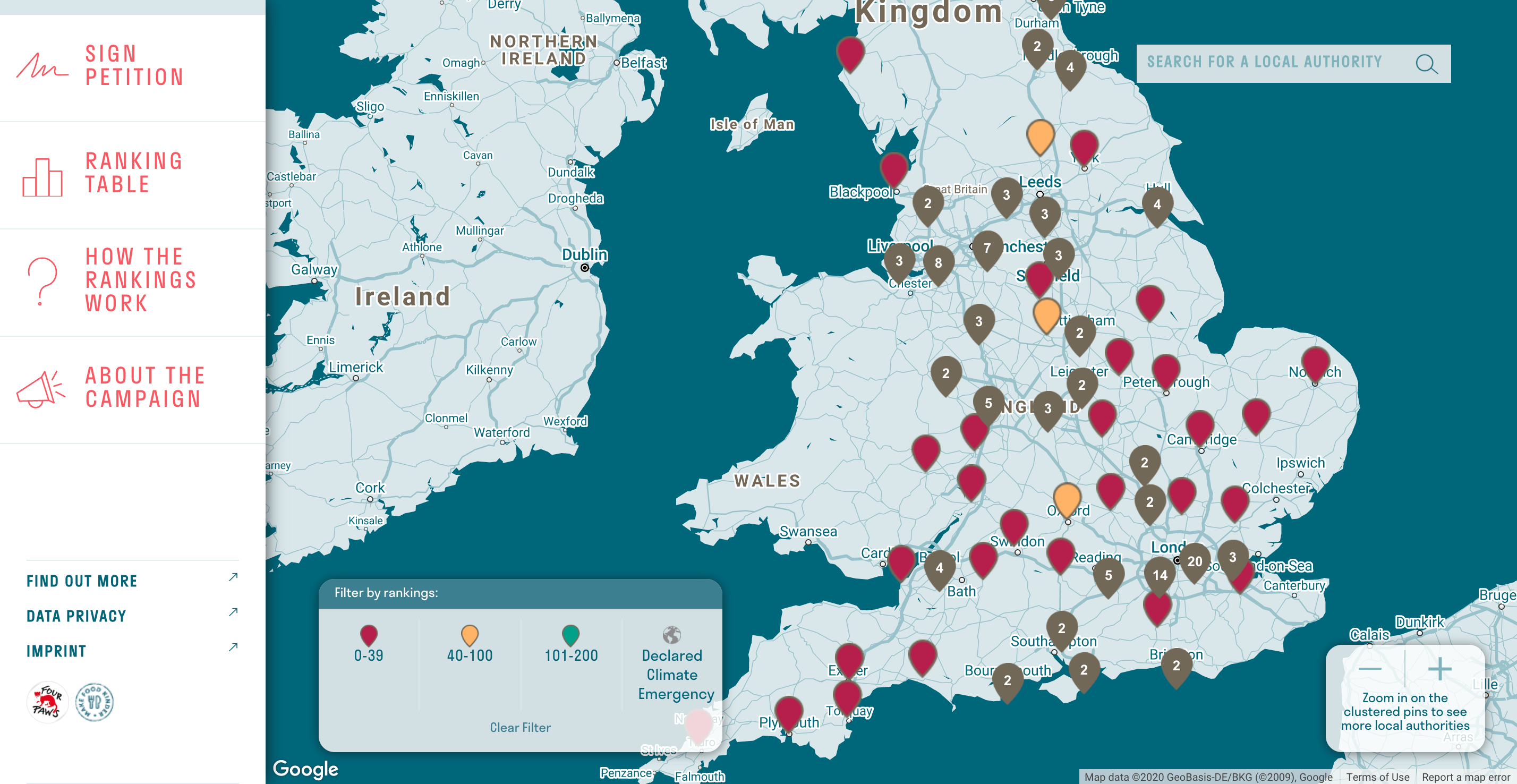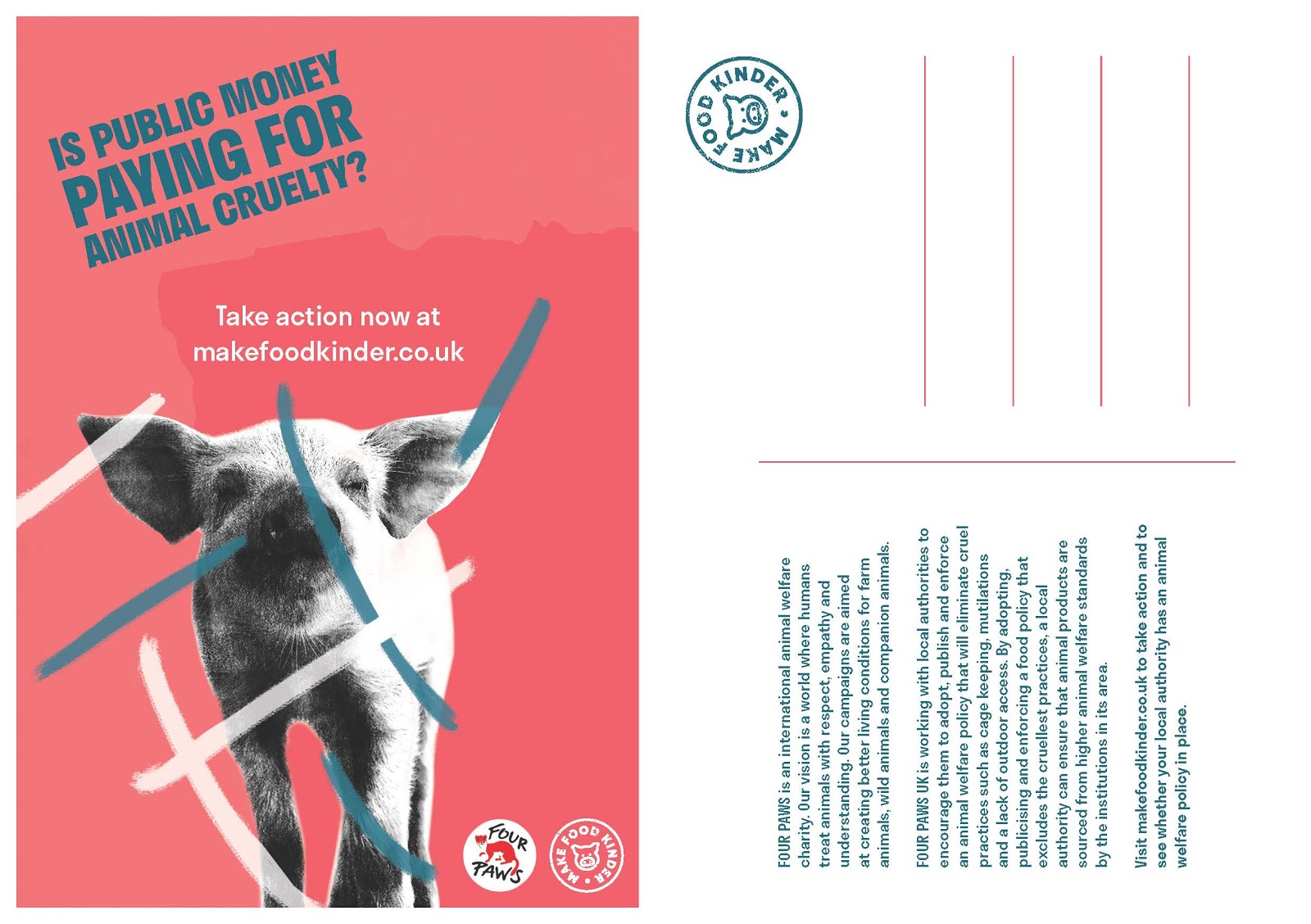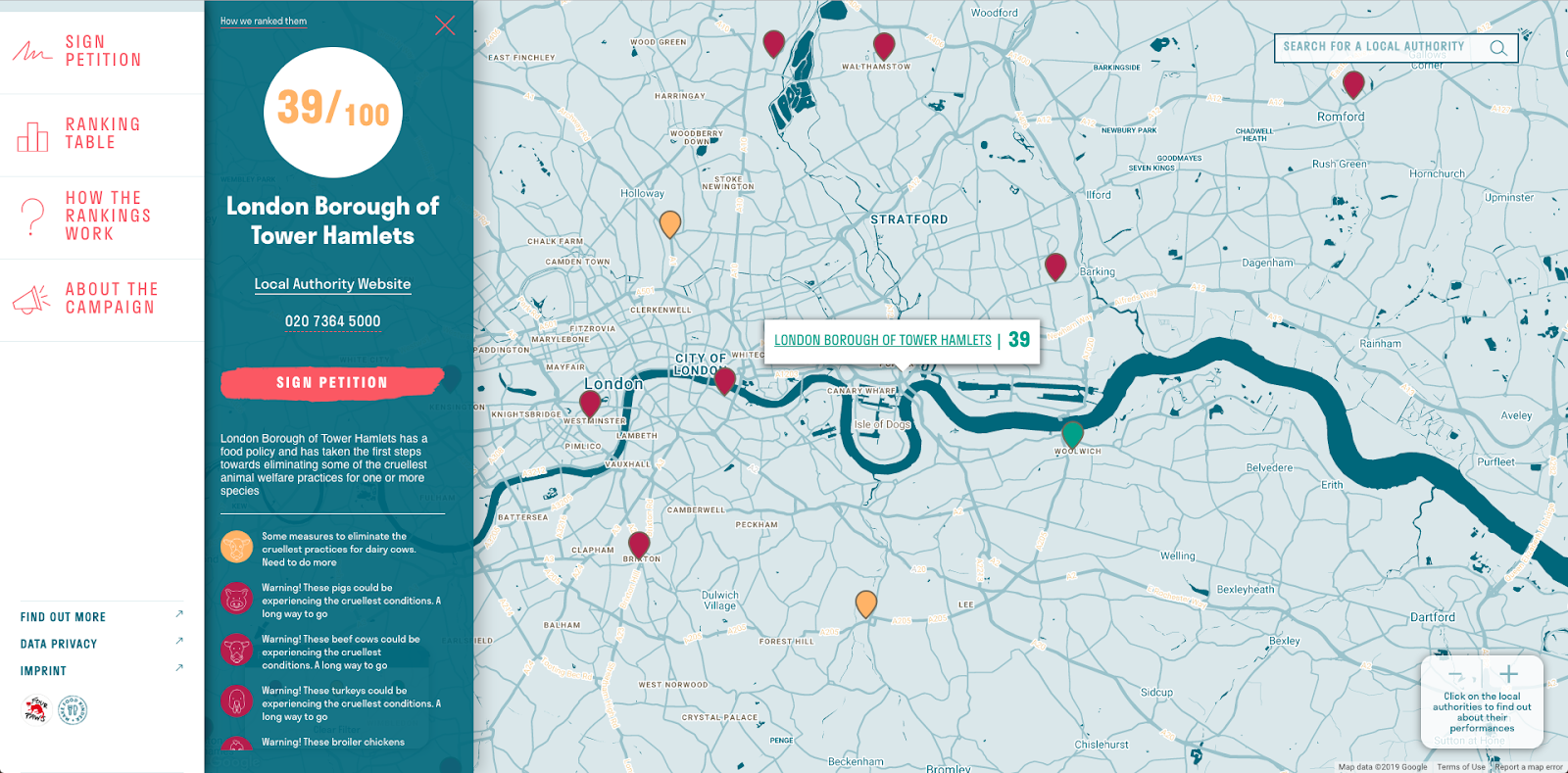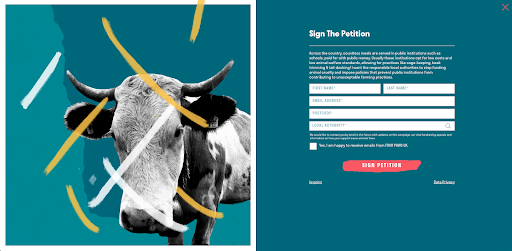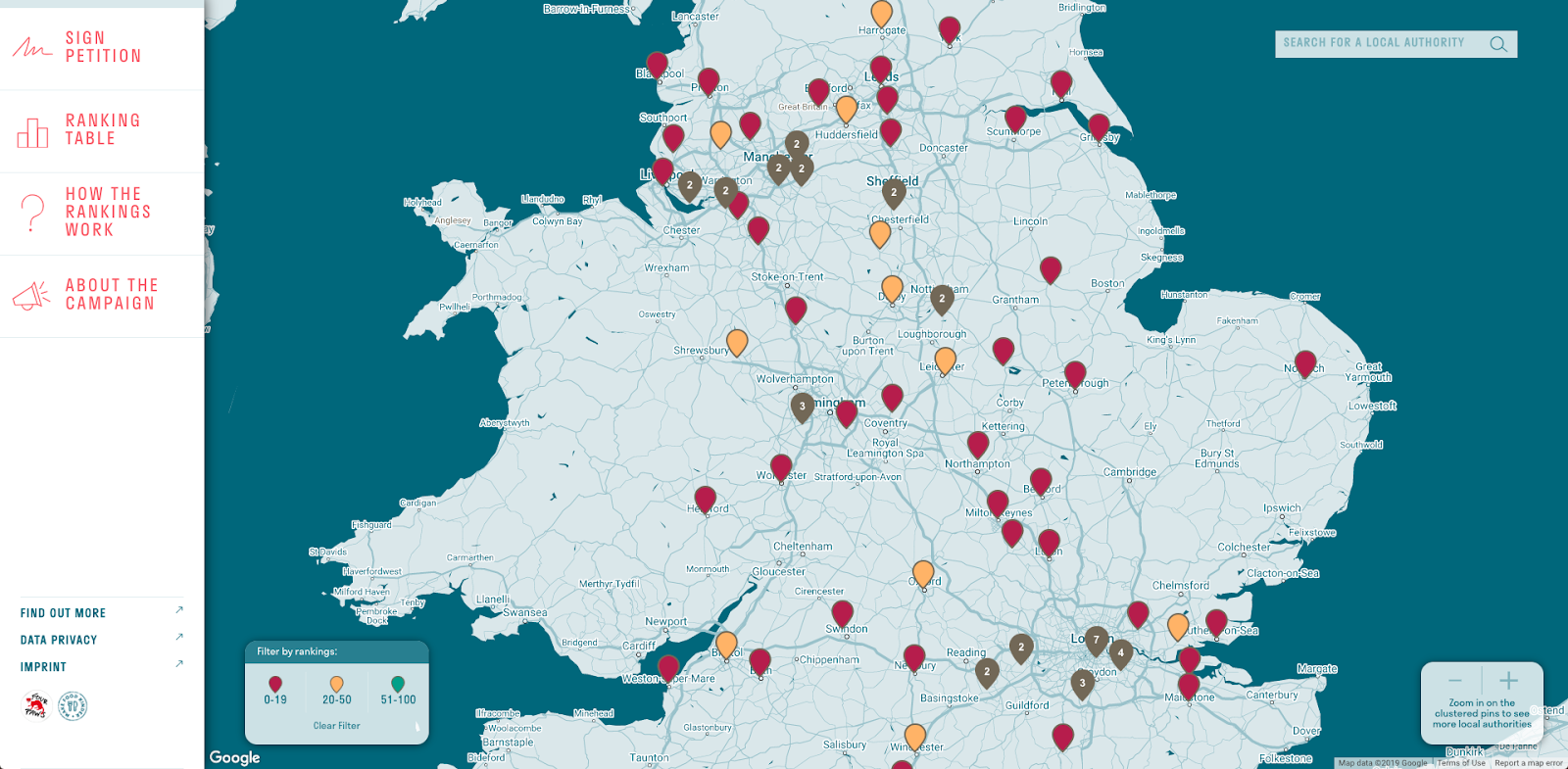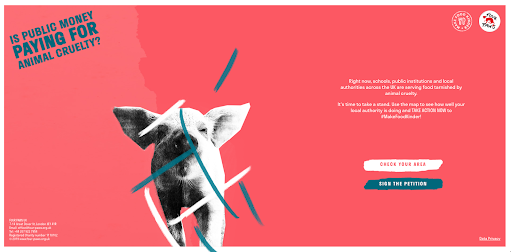Over the past decade, consumers have been moving towards more ethical choices when buying meat and dairy products. But animal welfare charity FOUR PAWS knew those same consumers might not be aware of one major issue: Public money is paying for animal cruelty. Local UK taxes are paying for the unethical meat and dairy supplied to public institutions such as schools and hospitals.
FOUR PAWS was leading a campaign encouraging local government authorities to adopt, publish, and enforce animal welfare policies but they needed help refining their message and bringing it to the masses. That’s where we come in.
People already want to Make Food Kinder
Healthy eating and low-meat diets have become a common theme in public conversation for a number of years in the UK, and this came through loud and clear in our research.
Consumers are trying to cut down on meat, and the UK has seen the number of vegans soar from 500k to 3.5m since 2016. According to Facebook’s audience planning tool, there are 7.5 million people with an interest in animal rights, and animal welfare is the top ethical food concern, with two in five people saying that buying ethical groceries makes them feel good about themselves.
Despite widespread support for animal welfare, there has been little conversation around farming practices and sustainable meat production. Even more so, it was evident that the connection was not being made between sustainable eating and schools or other public institutions.
We knew we needed to create an incentive for local authorities to improve their animal welfare standards and give UK citizens simple actions to take that were bound to make a difference.
Our research indicated the idea that the public is unknowingly and directly subsidising cruelty through taxes would resonate most — so that’s where we began.
Bringing the platform to life
As a team that spanned across five countries, four time zones, and three continents, we got to work to build a platform that would help FOUR PAWS International mobilise their audience.
Building upon the research, we developed clear goals for the campaign platform in our workshops: Raise awareness among public and local authorities, provide users with opportunities to take action, give local authorities incentives to improve their animal welfare standards, and encourage them to adopt a policy if they didn’t have one already.
We also developed a scoring system so that local authorities could easily see their animal welfare score and compare themselves against other local authorities. While FOUR PAWS began to gather information from authorities around their animal welfare practices, we developed a visual identity for the campaign and worked with our UX team to create a website prototype.
We handed the UX and campaign design over to our development team who brought the Make Food Kinder platform to life and, working closely with FOUR PAWS’ back-end website partner, placed the information gathered from over 150 local authorities onto an interactive map:
Simple actions all in one place
We gave users an easy path to action, creating a “one-stop shop” of sorts to incentivise folks to stand up for animal welfare.
Visitors to the site are presented with the opportunity to see how their local authority is doing, contact their representatives, and urge their local authorities to stop funding animal cruelty by signing a petition.
Within a month after the platform went live, the campaign received over 10,000 signatures to its petition. Further opportunities for local authorities to improve the welfare of animals have been identified and those metrics have been built into the platform — including the percentage of plant-based meals available at public establishments and a policy where the local authority recommends at least one plant-based meal per day.
